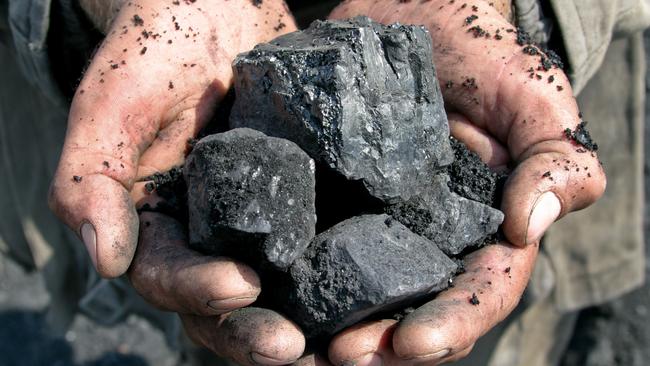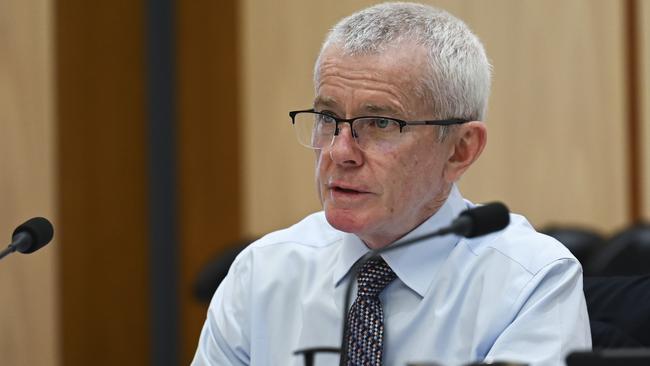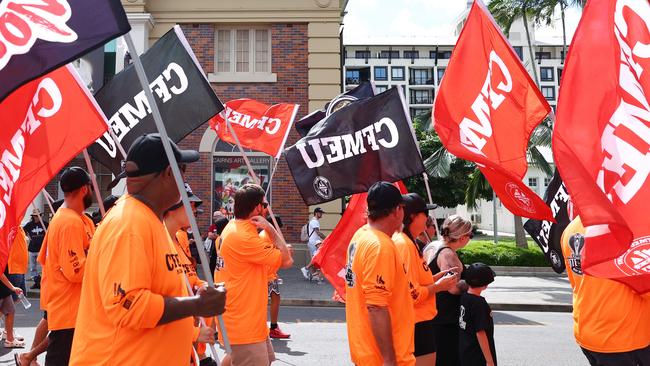
The industrial relations community was staggered last week when Australia’s senators voting on a show of voices – no one asked for a formal vote – decided to demand that the government investigate what is potentially the nation’s biggest wage underpayment scandal.
If shown to be correct, the alleged underpayment of NSW and Queensland coal miners will involve repayment of more than $100m.
Normally in such cases, it is the employers who must recompense the workers. But this case may be different. The coal miners were employed by a series of labour hire companies, but the alleged underpayment agreements were approved by Australia’s most militant union, the CFMEU, which actually negotiated and signed a number of them.
In addition, each agreement was approved by the Fair Work Commission.
The senators have demanded, if underpayments are found to have occurred, the government should “facilitate the reimbursement” of the underpayments.
Given the size of the alleged underpayment, both the CFMEU and Fair Work Commission may be required to accept some of the payment responsibility.
When I first disclosed this scandal, I called on ALP politicians and other supporters of the CFMEU and Fair Work Commission in the parliament to set aside their links and think of what happened to the coal miners. And that’s exactly what the senators did. Full marks. Now the Senate must make sure the government carries out their instructions in a proper manner.
The $100m-plus alleged underpayment would have remained concealed but for the only former coal miner in the parliament, Senator Malcolm Roberts.

Some years ago, a small group of coal miners came to Roberts telling him they believed they were not being paid correctly, and he worked tirelessly to discover that thousands of NSW and Queensland coal miners had worked long hours underground for over a decade as casual labour, but did not receive the 25 per cent “casual” premium workers all over Australia receive.
Roberts — now part of the One Nation party — explained to parliament how the scheme was constructed.
He set out how a clause in the Black Coal Mining Industry Award covering central Queensland and Hunter Valley coal mines actually made it illegal for mine employers to have casual employees.
But five labour hire companies told the mining companies that they had found a way to offer them casual labour.
The mining companies, delighted at the labour rates offered by the labour hire groups, quickly agreed to allow casuals to mine their coal, albeit those casuals were employed by third parties.
The five labour hire companies were able to offer low cost labour because they had negotiated with the CFMEU and others to endorse agreements that enabled labour hire companies to hire miners on a casual basis without paying the Australian standard 25 per cent premium for casual labour. Some of the agreements date back to 2018 and beyond.
The savings (and profit boosts) delivered by these agreements were monumental. Coal mines operate 24 hours a day, seven days a week, covering 365 days a year. Most coal miners work 12.5-hour shifts. The average work week is 43.75 hours worked any day, anytime Monday to Sunday.
The agreements convert to a flat hourly rate, so whatever hours worked the miner is paid the standard flat hourly rate.
According to Roberts, independent experts calculate these casual mine workers working under their awards should be paid $151,606 annually, but instead receive an average of $118,315. If that claim is shown to be correct, then when multiplied by thousands of miners over at least six years (but often 10 years) the amounts of underpayment are without precedent in Australia.
The fact the CFMEU — one of Australia’s most militant unions in working for higher pay for employees in areas like construction — would be involved in a scheme that allows workers to be paid less than national awards requires close parliamentary examination.

The radical agreements were presented to the Fair Work Commission for approval. In almost every other situation in Australia, the Fair Work Commission would throw them out with little debate.
Instead, the Fair Work Commission approved the CFMEU-endorsed casual labour with no 25 per cent margin deals on the basis of a highly dubious legal technicality.
The coal labour agreements are subject to what is called the “better off overall” or BOOT test. In any normal situation, there is no way a coal miner working as a casual can be better off not receiving the 25 per cent casual premium received by all other Australians working under awards.
But because the black coal award makes it illegal for coal miners to hire casuals, the “better off” test is matched against an award which does not include casuals.
The Fair Work Commission therefore decided the “better off” test does not apply because there is no casual rate to compare it with.
Roberts describes this arrangement as “legal trickery” and that an active union would have torn it to shreds. The Fair Work Commission after lengthy legal arguments approved the enterprise agreements.
Roberts made representations to the Fair Work Commission, but they would make no change. He also made direct representation to Workplace Relations Minister Tony Burke, seeking responses to the coal miners’ alleged wage theft in the light of the Labor government’s loophole bill. Burke did nothing.
But the Senate has now stepped in and added a clause to the 700-page industrial relations bill stating that the so-called loopholes act does not address concerns about the underpayment of casual miners.



